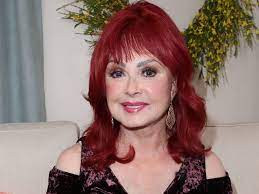— Ignoring this illness is not sustainable
by Arthur Lazarus, MD, MBA

Iconic singer #NaomiJudd died at age 76, one day before she was to be inducted into the #CountryMusicHallofFame.
Her daughters, #Wynonna and #AshleyJudd, shared a statement confirming her death: “Today [April 30, 2022] we sisters experienced a tragedy. We lost our beautiful mother to the disease of #mentalillness.”
An exact cause of death was not disclosed, and no additional information was forthcoming. However, the late Grammy-winning legend had been open about her #mentalhealthstruggles and descent into debilitating #depression and #suicidalideation. It was the focus of her 2016 autobiography, River of Time.
Five years ago, I attempted to schedule a follow-up appointment with a neurosurgeon who had operated on my spine. I clicked on his name online, but I received an error message: “Page not found.” Subsequently, I discovered that my #doctor had taken his life. I read his obituary on the internet: “Dr. Eugene William Strickland [a pseudonym] passed away suddenly. He was 55 years old. He is survived by his loving family.”
There was no mention of #suicide or the circumstances surrounding Strickland’s death.
Why are we afraid to say the word “#suicide?” Usually, it is for the benefit of the family, out of respect for their privacy. But the real reason is that #mentaldisorders remain the most stigmatized of all illnesses, and #suicide encapsulates mental aberrations to the extreme. I never considered my specialty (psychiatry) to have a mortality rate until one of my supervisors reminded me that our #patients die by #suicide and sometimes kill others by homicide, acts which can be prevented more often than not.
#James Donaldson notes:
Welcome to the “next chapter” of my life… being a voice and an advocate for #mentalhealthawarenessandsuicideprevention, especially pertaining to our younger generation of students and student-athletes.
Getting men to speak up and reach out for help and assistance is one of my passions. Us men need to not suffer in silence or drown our sorrows in alcohol, hang out at bars and strip joints, or get involved with drug use.
Having gone through a recent bout of #depression and #suicidalthoughts myself, I realize now, that I can make a huge difference in the lives of so many by sharing my story, and by sharing various resources I come across as I work in this space. #http://bit.ly/JamesMentalHealthArticle
Order your copy of James Donaldson’s latest book,
Celebrating Your Gift of Life:
From The Verge of Suicide to a Life of Purpose and Joy


One of the first things I learned as a resident — and even prior to that as a medical #student during my psychiatry clerkship — was that asking #patients about #suicidalideation is an essential component of the mental status examination. I would have flunked my psychiatry boards had I not asked the question — “Have you ever had thoughts of harming yourself?” — to the #patient I was assigned to interview.
It is unfathomable that a myth persists that asking #patients if they are suicidal will precipitate the action, despite abundant research that has shown asking about #suicidalthoughts or attempts will not “put the idea” in someone’s head. On the contrary, acknowledging and talking about #suicide may reduce, rather than increase, #suicidalbehavior.
The difficulty that clinicians seem to have in initiating discussions about #suicidalideation has less to do with #patient characteristics than it does with clinician anticipatory #anxiety about learning that a #patient is positive for #suicidalideation. Another one of my supervisors commented, “Art, the only thing worse than a suicidal #patient is one who doesn’t show for their appointment.” It got me thinking that cherry-picking #patients by avoiding those who are suicidal is not a bad idea. Then I realized it was not a sustainable strategy, nor is it even desirable if a #psychiatrist really wants to learn his or her craft. It behooves clinicians to become comfortable asking “the question” and to become aware of interventions for the prevention of #suicide in their practice.
Reading accounts of people who have died suddenly and mysteriously, without explanation, typically invokes #suicide as a cause of death. The unwillingness to acknowledge a #suicide reminds me of a bygone era when cancer was referred to as the “C” word, and the diagnosis was whispered and discussed in muted tones owing to its perceived incurability. Neither cancer nor #suicide is incurable, however. Knowing the risk factors and recognizing the warning signs for #suicide (and cancer) are common preventive measures. But #suicide cannot be prevented unless we inquire about self-injurious thoughts and #behaviors in our #patients.
It is more correct nowadays to refer to individuals as having completed #suicide rather than having committed #suicide. What’s the difference? The former notation indicates that #suicide is usually a contemplative event as opposed to an impulsive act. Most individuals who complete #suicide have thought about it over a period of time, once again providing clinicians and others an opportunity to intervene. Warning signs — verbally or behaviorally — precede most #suicides. Only when those signs are not recognized or well-hidden does it seem like the #suicide was sudden or a shock.
Contrary to the theme song from “MASH,” #suicide is not painless, and it brings on many changes — to loved ones left behind. And what about the fate of #patients under the care of the approximately 400 #physicians who die each year by #suicide? How do they cope with the loss? #Patients are rarely privy to the circumstances surrounding the #suicide deaths of their #physicians, which often leave them confused and unable to obtain closure, possibly making it difficult to move on with their treatment.
Finding another #physician I could easily entrust with my spine wasn’t easy for me. In fact, after consulting a half dozen neurosurgeons, I still haven’t found one.
If you or someone you know is considering #suicide, call the #NationalSuicidePreventionLifeline at 1-800-273-TALK (8255).
Arthur Lazarus, MD, MBA, is a #psychiatrist.




